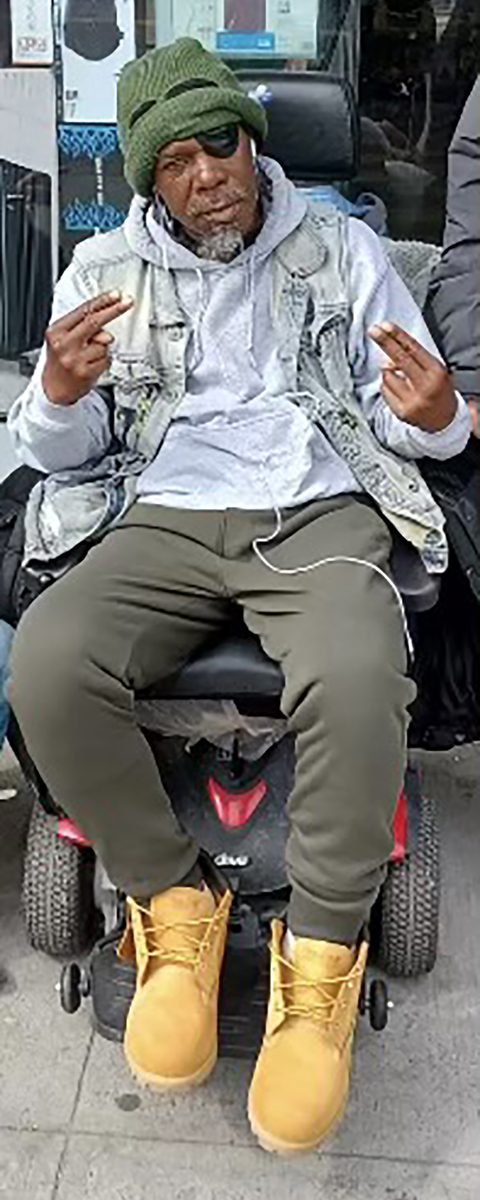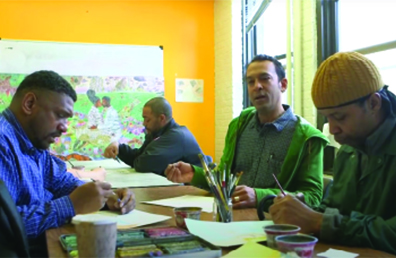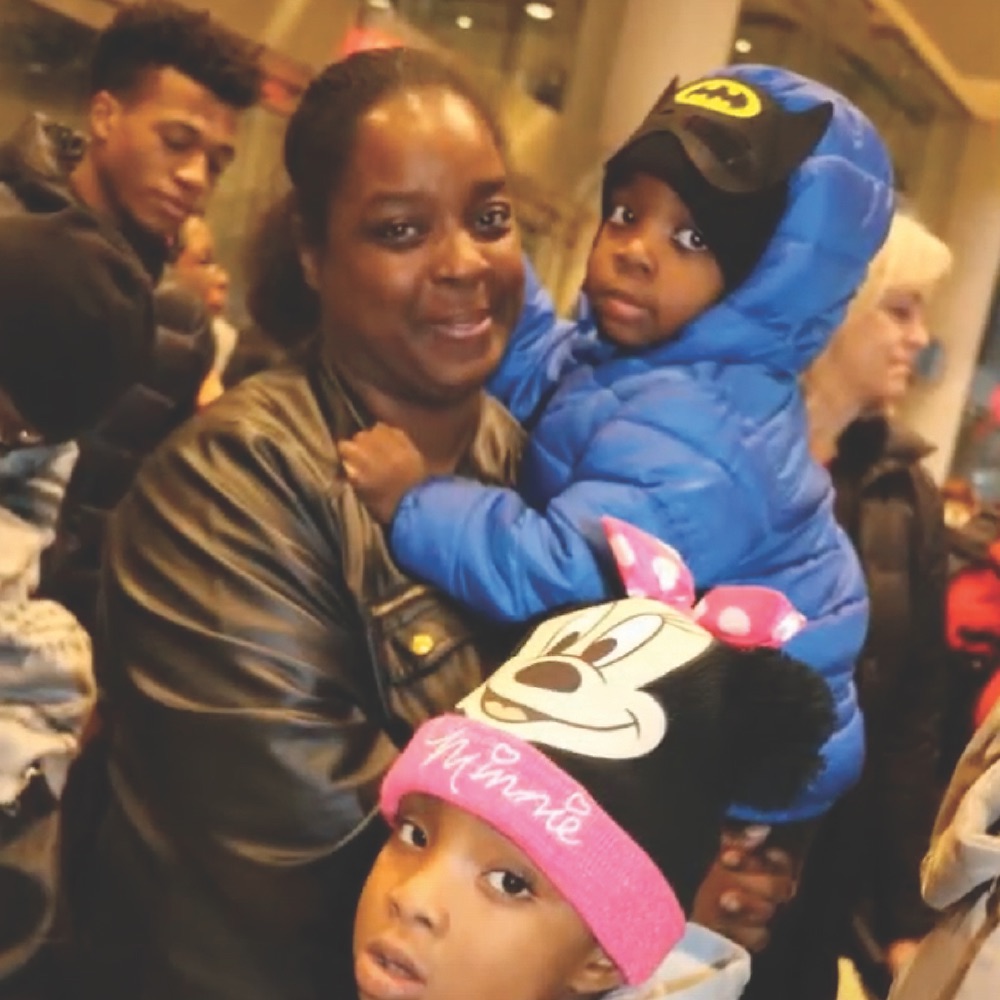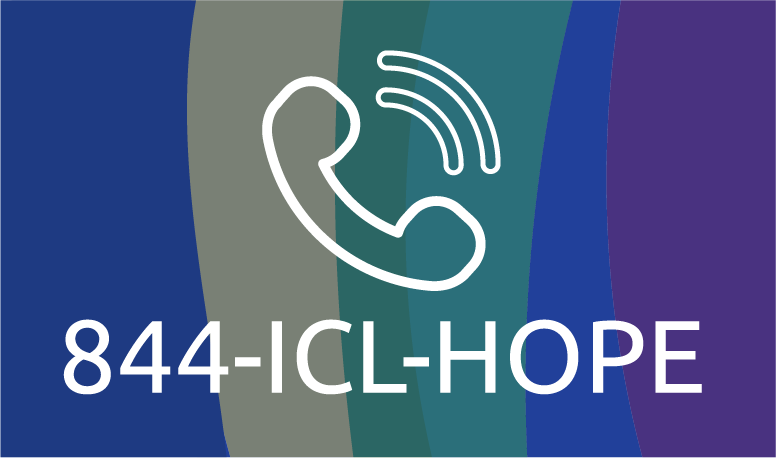| | | | | |  | | | OnTrack to Being Better Standing on a Brooklyn street, Benn, 23, felt panic set in. An artistic person with a love for photography nurtured by their parents, Benn had just taken a test in an accelerated program that quickly earns students a college and radiography degree. Benn was sure they failed and, because the college had a one strike you’re out rule, was about to get kicked out. Back in their apartment, Benn felt things spiral out of control and started having harmful thoughts. It was not Benn’s first experience with a mental health break. Benn knew to call NYC Well – the City’s mental health crisis line. Soon enough, Benn connected with ICL’s OnTrack program. | | | | | | | | | | | |  | Dishi Tyler hangs out in his neighborhood | | | | | Dishi Tyler, a 49-year-old native of New York City, had been street homeless for seven years, had a history of substance use, and medical conditions that bound him to a wheelchair. When one of ICL’s Bronx-based Intensive Mobile Treatment (IMT) teams tracked him down, he was ready for support, “I needed help. It’s hard being out on the street all day and night with nothing to eat,” he says. ICL’s IMT teams provide the highest level of care to individuals who have not been successfully supported by other services and who are in frequent contact with the mental health, substance use, criminal justice, and homeless services systems. They are the individuals with the most acute challenges, and ICL’s team meets them where they are. The program’s intensive nature allows teams to build the kind of trust with clients that ensures ongoing treatment and recovery.The team includes a psychiatrist, nurse, social worker, peer specialist, housing specialist, and other staff, depending on a client’s needs.Each client is seen as often as needed and the team will meet the client wherever they want - be it a park bench, a shelter, a street corner, an apartment; anywhere. The IMT team builds relationships with clients, often celebrating and grieving alongside them every single step of their journey. | | | | | | | | | | | | The Pros of PROS People who experience significant trauma often wind up in hospitals, residential facilities, or even jail. When they are released, ICL’s eleven-year-old Personalized Recovery Oriented Services (PROS) program, based at the East New York Health HUB, offers the full-day in-person programming many of them need. Monday through Friday, over 170 people attend group therapy sessions, see a psychiatrist and a nurse, and meet with benefits and employment specialists. PROS participants can also join an art class, stay connected with family and friends via the computer lab, and enjoy breakfast and lunch in the cafeteria. | | |  | PROS participants creating art at the East New York Health Hub | | “PROS is a person-centered recovery program. We meet clients where they are and help them achieve their goals and reintegrate into society,” says Toni Kimpson, program director. | | | | | | | | A bedroom at the medical respite residence | | ICL’s innovative Medical Respite provides short-term residential care that allows individuals experiencing homelessness, regardless of documentation status, the opportunity to recover and heal in a safe environment from an illness or injury that does not meet the requirements for a hospitalized level of care. Like all the programs at ICL, Medical Respite embodies a whole health approach by helping patients with their physical, mental, and social determinants of health. The program provides 24/7 care, including coordinating clients’ primary care, behavioral health care, social support networks, and other social services. Importantly, many participants are placed into housing following their Respite stay, including in permanent housing, supportive housing, or by being reunited with family. | | | | | | | | | | You Can Make a Difference You can make a difference in the lives of all those who rely on ICL. Government funding falls short in paying for the additional support Benn and Dishi need, such as a metro card for getting to medical appointments and job interviews, help with rent arrears so they won’t lose their home, bags of groceries to get them to the end of the month, and other emergency assistance. Please make a tax-deductible contribution of cash or appreciated stocks today. Use the enclosed envelope or contact Miriam Millan, Miriam.millan@iclinc.net or 212-385-3030, ext. 16104. | | |  | An ICL participant with her children | | | | | | | | | | | | | | Institute for Community Living ICL helps New Yorkers of all backgrounds and ages living with serious mental illness, substance use disorder, and developmental disabilities achieve greater health and independence. Your gift will immediately help those with the greatest need. Please take a moment to help people get better with us. To discuss your gift or learn more about your giving option, please email Development@iclinc.net or call 212-385-3030, x 10004. | | | | |  | Call 844-ICL-HOPE (844-425-4673) to connect to resources. Visit iclinc.org to learn more about ICL programs and services. | | | | | |  | | | | | | | Contact Us Institute for Community Living (ICL)
125 Broad Street, Third Floor
New York, New York 10004
212-385-3030
info@iclinc.net | | | | | | | | | | | |